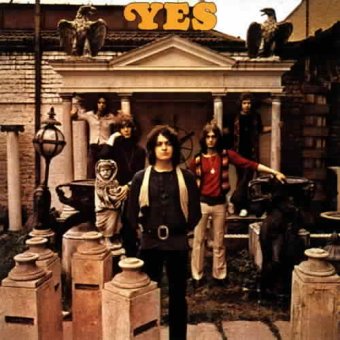
Yes (1969)

1. Beyond and Before
2. I See You
3. Yesterday and Today
4. Looking Around
5. Harold Land
6. Every Little Thing
7. Sweetness
8. Survival
Whether you consider them visionaries or self-indulgent noodlers, there's no denying that Yes were the embodiment of what would become known as progressive rock. To the rock purist, their penchant for baroque structure and rhythmic gymnastics felt like sacrilege. But to their followers—and plenty of open-minded critics—they were explorers charting new sonic territory. Their self-titled debut, Yes, released in 1969, might not have rewritten the rulebook, but it certainly flipped through the pages with wild curiosity. Even then, the band had already adopted their now-trademark roulette of personnel swaps. Lineup volatility wasn’t a setback—it was an ethos.
The five players featured on this maiden voyage brought varying levels of experience, but they shared an unmistakable polish. Bassist Chris Squire—who would outlast every other member in the band’s shapeshifting history—played like a man who had no intention of fading into the rhythm section. His tone was brash, wooly, and unmistakably forward. Then there was Bill Bruford on drums, a player of such intricate flair that he often seemed to be soloing even when he wasn’t. His fills spill across the record like someone trying to squeeze a five-course meal into a lunchbox. Unfortunately, typical of the era, the mix often treats him like an afterthought—crammed into some sonic attic behind shag carpeting and tape hiss.
Jon Anderson’s voice, however, is never relegated. His featherlight tenor flutters above the fray, delivering mysticism and romance in equal measure. Without Anderson, Yes often felt like a ship without its sails—technically afloat, but lacking propulsion. Tony Kaye’s keys, while not the fireworks display that later players would bring, offer restrained texture that serves the songs rather than upstaging them. In an age of overkill, that was no small virtue.
And then there's Peter Banks. Forgotten by too many and underpraised by the rest, Banks’ guitar work here is fluid and sharp. Sadly, he’d be the first to exit the Yes carousel, nudged out after the orchestral leanings of their second release, Time and a Word made his role sligtly expendable (or so he thought). It's a shame, as he’s in particularly fine form here—especially during his locked-in mid-track duel with Bruford on their reworking of The Byrds’ I See You.
Stylistically, the record is a sampler platter of proto-prog ambition. Not yet ready to dive into 20-minute epics or side-long suites, Yes instead threads adventurous ideas through conventional song lengths. In the same breath, it plays like both a love letter to the psychedelic '60s and a mission statement for the cerebral '70s. Their cover of The Beatles’ Every Little Thing explodes into chaos before tightening its grip, while I See You stretches the original into a jazz-flecked maze of interplay and momentum. It’s hard not to wonder whether these covers were strategic moves—familiar bait to lure listeners into a stranger world.
Among the originals, Yesterday and Today is a hushed ballad full of restraint, while Sweetness lives up to its title with soft melodic charm. Survival, however, is the closest thing here to a full-blown Yes anthem—a tumbling, jagged composition that points directly toward their coming grandeur. Still, like many debut records, some of it does blur together, the result of too many ideas packed into not enough tape. But for musicians and listeners who enjoy peeling back the layers, the reward is still there.
For the record, this should not be confused with The Yes Album, which would arrive a couple of years later and truly launch them into prog orbit (if not showing that they were a bit unoriginal when it came to album titles). But as first chapters go, Yes is anything but shy. It’s the sound of a band testing their wings—not quite soaring yet, but already defying gravity.
Go to the Next Review
Go back to the main page